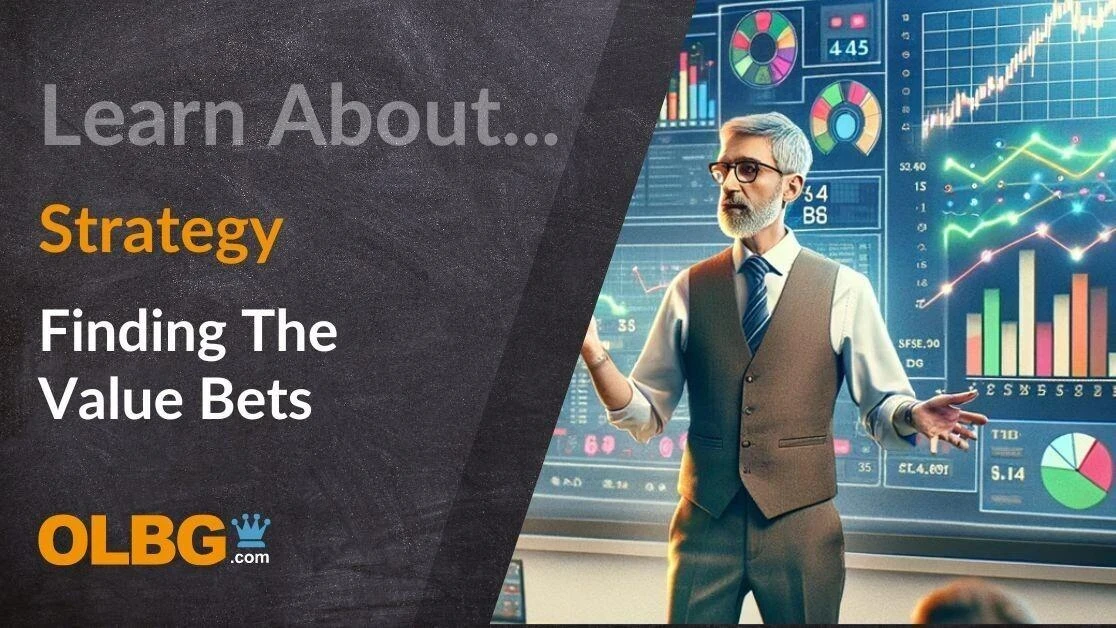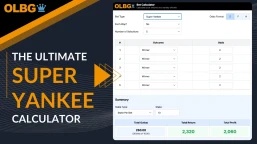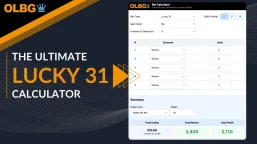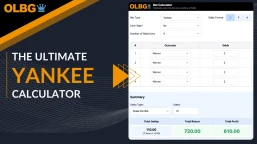
I've spent over 20 years inside the betting industry. I'll guide you to avoid the hype, ignore the noise, and steer clear of the common pitfalls that catch out everyday punters.
What is Value Betting?
Are you ready to change your betting habits for the better? - The very fact you have found this article, means you must be searching for help with understanding what a value bet is
What is value betting? - The value comes in being able to bet on an event that is more likely to happen that the betting odds suggest. Using only accurate value betting selections will assist you in making a long term profit when betting against bookmakers. You will have losers, there remains a risk, but master finding value bets and you on your way to betting success.
Mastering Value Betting
A key tool for this is to ensure you are betting with the best bookmakers for the sport or event you are considering + you can always take advantage of any free bets on offer.
Add to that the assurance that you are getting the best odds more often and you are a good way to capping off finding more value in your bets than other punters

Is Value Betting Profitable?
The one thing most people looking to make a profit betting are looking for is something that is profitable. Straight up gambling will never provide a profit, but by mastering value betting, it is possible to make your betting pay.
Is value betting profitable? - Identifying value bets and using them exclusively determines that value betting is profitable when used correctly and in a strict manner. It is however not risk-free, losers can be expected and factored into long term plans and forecasts. Ultimately, if you can find value, you are moving the edge away from the bookmaker and into your favour.

This guide is going to provide the most comprehensive information to assist you in finding value bets, how to look for them, how to use them and how to maintain your edge over the bookmakers.
Does Value Betting Work?
It absolutely does, but it is essential that you master the skill of identifying real value. A false value is the biggest risk in this betting approach, so to understand the difference between the two is essential
This guide will help you understand the difference and point you in the right direction of value betting selections.
A value bet may not win every time, indeed it won't, it may not even provide a profit over a given week or month, but in the long term as long as you can identify the value and have it in your favour your long term profits will attest to your ability to find value in your betting habits.

Be aware that you will not always be betting on the most likely winner - See Below
How to Find Value Bets
Lets use an extreme but very simple example of a value bet to begin the process.
The true probability of coin toss and the two possible outcomes is 50/50.
That is 50% chance of either outcome happening.
This is demonstrated in odds of Evens - the true odds based on the true probability of the outcome
If you were offered odds of 3.00 (2/1) on either heads or tails landing, this would represent excellent value
| True Odds of Heads | Odds Offered | Value? |
|---|---|---|
| 2.00 | 1.50 | No |
| 2.00 | 2.00 | No |
| 2.00 | 2.10 | Yes |
| 2.00 | 3.00 | Yes |
In the table, we have three examples of odds being offered based on a set probability that is easy to understand
With the true odds on the outcome sitting at 2.00, any odds offered equal or less than 2.00 does not qualify as value, but the moment that the odds exceed the true odds of 2.00, then the value is achieved,
How to decide how much value there is in the odds.
So this is the next step, as in the table above you can see that odds of 2.10 and 3.00 both offer value.
It doesn't take a genius to understand that one offers more value than the other, or which it is, but how can we represent this in a fashion to quantify the value?
Probability is represented by the percentage terms of the outcome, so in the coin toss, this is 50% for each possibility. Understand this is 0.50 and use this formula
(Probability x Decimal Odds) - 1
Any figure above 0 is value on a scale
Let's do the table again
| Probability | x Odds | = | -1 | Value |
|---|---|---|---|---|
| 0.50 | x 1.50 | 0.75 | -0.25 | No |
| 0.50 | x 2.00 | 1.00 | 0.00 | No |
| 0.50 | x 2.10 | 1.05 | 0.05 | No |
| 0.50 | x 3.00 | 1.50 | 0.50 | Yes |
The Other way to look at this is to understand probability in terms of the event and the implied probability represented by the odds, So let's compare
Using the coin toss again and head being the result
- Real Probability - 50%
- Implied probability represented by decimal odds of 3.00 = 33.3%
Here your value is represented and quantified by the parity of the real probability and the probability implied by the odds. In this case the difference between 50% being the real probability and a lower probability according to the odds.
This is where, as a punter, you have to act and jump in on the opportunity, nabbing the value and the edge over the bookmaker.
Let's put this in the table again, to demonstrate the various examples and use some more variants of decimal odds to demonstrate how value increases as the parity in the prices expand.
| Real | Odds | Implied | Difference |
|---|---|---|---|
| 50% | 1.50 | 66% | +16% |
| 50% | 2.00 | 50% | +/-0 |
| 50% | 2.10 | 47.6% | -2.4% |
| 50% | 2.25 | 44.4% | -5.6% |
| 50% | 2.50 | 40% | -10% |
| 50% | 2.75 | 36.4% | -13.6% |
| 50% | 3.00 | 33.3% | -16.7% |
A lower implied probability over the real probability is your edge - the bigger the minus figure the better the value you are receiving and as you can see in the example in the table, 2.4% is a definite edge for you, but a very small difference in the odds can make a HUGE difference in the value you are getting
- 2.10 = 2.4% advantage
- 2.25 = 5.6%
- 2.50 = 10%
- 2.75 = 13.6%
- 3.00 = 16.7%
Find Value in Sports You Know a Lot About
To spot a good value bet, first of all, you are going to need a very good knowledge of the sport you are betting on so that you are able to determine what factors are in the favour of the bet which makes it look so overpriced.
One of the best techniques to find value bets is to price up markets yourself before the market is formed. This is not as hard as you might think and this guide to creating your own odds may help.
By pricing events upon how you feel they are likely to unfold you can then compare your own market to the real market when it is formed and look for the differences.
The selections that are much bigger at the bookies than with your own prices should be the value calls in that event.
The bigger the difference, the bigger the value.
Laying for Value
Finding value bets can also be applied to laying on the exchanges. Again, it is often best to decide what prices should be before the market is formed with the bookies.
Any selection that is a smaller price with the bookmakers than with your own prices should be considered a lay because they are underpriced according to your odds.
The more underpriced the selected outcome is, the better a lay it is going to be.
Example
You may think a horse has a decent chance of winning but you think it should be an even money shot. The bookies have priced it up at 1/2. This should be a value lay.
Does It Mean You Always Back The Most Likely Winner?
Backing something that is deemed value is rarely a bet on the most likely winner or favourite. In most cases, the bet will be on an outsider or a bigger priced fancied selection.
Of course, there will be times when the favorite is deemed both the most likely winner and also offers value, but this will happen less frequently than backing against the favourite in an event, whether that be horse racing, football, a tennis head to head or any other sport.
Example
You see a horse priced at 5/1 yet you estimate it has a 33% chance of winning (fair price 2/1). Assuming you are right with your estimate then there is still a 67% chance you will LOSE! IN THE LONG RUN, if you are right then if you meet this situation 3 times then you can expect 1 winner (paying 5) and 2 losers (losing 1) giving you a profit of 3.
How to Maximise Value With Kelly Criterion
Once you have found the value bet in an event, you want to next ensure you are making the most of the opportunity. So how much do you bet?
Well, the one thing you should always keep in mind, is a responsible approach to gambling and ensure that you do not bet more than you can afford to lose.
Kelly Criterion vs Level Staking
Read Now
One good way of doing this is by having a separate betting bank.
This is a a pool of money separate from everything else in your financial life, that you know you can use for betting, lose and not have your financial position in life compromised.
In addition, there is, fortunately, a staking system build, scientifically for managing a betting bank and taking advantage of value bets when you find them it is known as the Kelly Criterion.
It looks quite complicated to begin with, but with a little practice, you will see how this has become one of the most widely used, and reliable staking plans for financial transactions.
Any Betting Selection Can Be Value
Short priced favourites can be value.
In horse racing if a horse is priced at 1/4 then this is fair odds if it has an 80% chance of winning.
However, if you think it has a 90% chance of winning then the odds are good value.
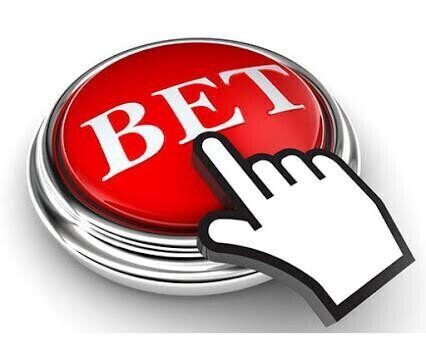
Examples Of Value Betting
Many value bets are based on predicting returns to form of football sides, horses, greyhounds or anything else. There has to be a valid reason for them to return to form though for it to be deemed a value bet, rather than just a big priced guess.
In football, a team might return to form because a key player has returned from suspension or injury. They might also have just had three or four very hard games in a row which they may have lost, which would lead to the conclusion they are out of form. However, playing an easier side could bring about a revival in their fortunes.
A horse might favour a particular type of course or a particular type of going and might have raced without its favoured conditions for many races in a row. When returning to its favoured conditions it will most likely be priced upon its recent form which wouldn't be very good. It can be expected to improve for a return to its favour conditions meaning the price for it to win is too big which makes it a value bet.
There can also be value gained in opposing big reputations, be it in football, horse racing or any other sport.
In the 2007 flat racing season, the Coral Eclipse at Sandown had three main contenders, Authorized, George Washington and Notnowcato. Whilst we are talking in hindsight here it is still a good example of how one may have come to the conclusion of a value bet
- Authorized was sent off at 4/7 despite being unproven at the top level over 10 furlongs
- George Washington was sent off 4/1 despite being unproven over 10 furlongs
- Notnowcato, a winner of two group ones, one of which was over the same trip on the same ground was sent off at 7/1.
This race had more than just these three contenders but they were the top three in the market
We have a situation where two shorter priced runners were priced quite low, and even odds on in Authorized case, whilst an opponent in Notnowcato was a bigger price, had won over the same distance as the race and had shown enough class to win a top-level race previously.
It is quite reasonable to assume that Notnowcato would fall into the 'value bet' category for the race.
If that was a conclusion a value betting hunter had come to, they would have been richly rewarded
Easy to look back and find a value bet example being successful, the trick now is to find a race in the future with the same opportunity, identify it, bet and win.
Each Way Value Betting
Value bets don't just have to win to be profitable, there are also many value each way opportunities out there.
Some horses in big field handicaps where four places are paid can be very likely to place but quite unlikely to win. Backing them each way can often effectively give you a free win bet on them as you believe they are very likely to reach the frame at least.
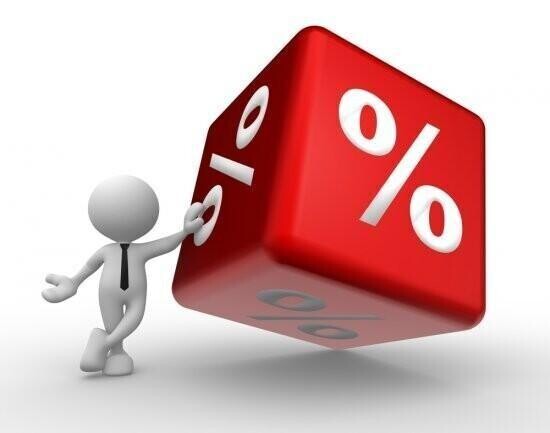
Alternatively, a horse could be such a big price that gaining a place could be very profitable alone.
Each Way betting Value is harder to find than you might think when having to take into account the bookmakers edge on each way prices, but if you know how to look for the value you can find it.
Example
You may back a horse at 33/1 in a 16 runner handicap not because you think it will win but because you think it has a decent chance of running into a place.
Another way a selection can be each way value is in races with a very short-priced favourite. This will make all the other runners at least high single figures making backing each way a profitable bet if all it has to do is follow the favourite home to yield a profit. The bookies call these 'bad each way' races and whilst they often place restrictions on stakes it is not too difficult to get a bet on.
Advantages Of Value Betting
Theoretically, most bets you should place should be considered value bets. It is okay to place your fair share of bets at odds that are deemed to be fair if you think it is a very likely winner but you should never bet on anything that you think represents poor value.
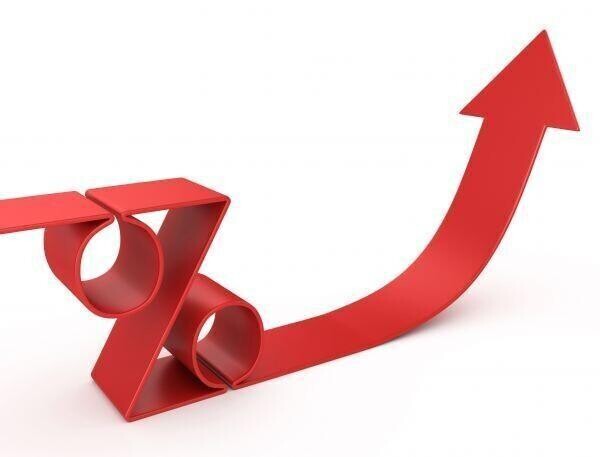
By backing value calls you should be profitable in the long term as it only takes one win to make a big difference to your betting bank.
Disadvantages Of Value Betting
Value betting can sometimes be difficult if you don't have a very strong knowledge of what you are betting on. It is time-consuming to price up lots of different events before the bookmakers do so and if not done properly it can lead to mistakes being made when deciding what is value and what isn't.
Betting on value shots rather than most likely winners should yield a profit over the long term but in the short term, you have to be willing to expect losing runs. Betting Discipline is required to not chase these short term losses and you must try not to give up during a losing run as if you are betting on real value bets then it should only be a matter of time before you back a winner and are back in a profit.
Value Betting Nonsense

Go on any forum and you'll see some comments on value betting that just make no sense. Here are some of the popular misconceptions:
1. Short Price is not value, what matters as described in the example above is how the price compares to the chances of it winning, what the actual price is doesn’t matter.
2. Bigger price is better value - as above, a big price could be terrible value if the selection is priced lower than its realistic chance, 2/1 odds on something with a 25% chance of winning is worse value than Evens on something with a 50% chance of winning.
3. If something is a short price, combine it in a multiple to get better value If something is a short price then it may or may not be value depending on the chance. Combining the selection with another selection won’t change the value of either selection it will just compound the value of each into one bet.
Steamers and drifters
There is always value to be found when noticing horse racing markets where there are 'Steamers' and 'Drifters'
Find out What Bookmaker Terms Mean
Usually, that value is found by going against the crowd, swimming against the tide, and taking the market moves for what they really are - Punters following other punters like sheep.
This is the time to be the Shepard and round all that lovely punter money up and put it in your own pen.
What is a Steamer?
Many a finger has been burned or a pocket filled by the performance of a steamer in horse racing but what exactly is one?
Should I bet on Steamers?
If you can get in early on the gamble then you may still get some value in the wager, if you join the gamble toward the end when the contraction flattens, out, you may still end up with a winning bet, but in the long term getting in at the end of the gable will not produce long term profits and will almost certainly not be classed as a value bet, win or lose.
Many steamers win the race in which they have been gambled - many more don't! - There is a point where the price of the steamer in the race has contracted to such a point simply through the weight of money and not it's probability of winning the race that there becomes value in opposing the steamer with other runners with chances in the race.

When a steamer gamble begins, bookmakers will be taking a great deal of money on a single runner. In turn this will leave them with unbalanced books. Liabilities to large on a single runner so that if that horse won the race, they would make a loss laying bets on that particular race.
The way bookmakers deal with this is by offering bigger prices on other runners. They increase the odds of other runners to attract more money into the book so they can level up their liabilities to ensure a profit regardless of the outcome.
Read our understanding bookmakers guide to see how the weight of money moves betting markets and how bookmakers make money using these tactics.
Read Here>
Strike while the Iron is Hot and Oppose that Steamer (Sometimes)
Your value bets have appeared simply because the weight of money on the steamer has ensured that other runners in the race are now being offered at bigger prices than their true liability. - It makes them no more likely to win the event, but the price has become the value aspect
One thing to remember is that professional gamblers do not back outcomes on the likelihood of them being correct, they always bet on the price offering long term value.
What is a Drifter?
Everyone loves a winning drifter!
A drifter in horse racing is a runner whose price gets bigger and bigger in the pre-race betting market. There can be a number of reasons why the price is drifting.
The reason we should be interested when a horse's price is drifting is that it may be getting into a position where the price is becoming larger than the real probability of it's winning chance
A drifter is the opposite of a 'Steamer' in that the betting odds get bigger and bigger.
Often a drifter will be caused in horse racing through the news of the horse not moving well or information that it is not in tip-top form. But it can also see the price lengthening as the bookmaker takes very little money in bets, so can afford to lengthen the price to balance the book without putting his liabilities at risk.
A chocolate bar or erstwhile child's bicycle are both incorrect answers.
FAQ
FAQ
Value Betting
What Is Value Betting?
Value betting involves identifying situations where an outcome's probability is higher than the odds or opponent's actions imply. It's an essential concept in maximising returns in all forms of gambling and can be a crucial strategy in improving profitability.
How Do I Profit From Value Betting?
Read all the above sections, but please take note of
- Your Bankroll
- Evaluating Value Opportunities
- The Execution Of Your Bets
- Your Mindset
- Your Research
- Risk Management
- Continuous Learning
What is The Opposite Of Value Betting?
If you consistently place bets on outcomes with very low odds and a high chance of losing. You will be regularly betting where the risk outweighs the potential reward.
How Do I Target Value Betting Opportunities?
- Check the best bookmakers' odds and always take the best odds for your selection; make this a daily habit.
- Calculate probabilities on your bets,
- Learn how to create a book
- Analyse any market inefficiencies.
Do All Bettors Use Value Betting?
They do not, but the most experienced would only place a bet with the value being on their side.
What Should I Do As A Novice When It Comes To Value Betting?
You, as a value hunter, need to build your combination of betting skills and to always make well-informed value betting decisions.
Keep meticulous records and understand the rationale behind all your bets.
Gamble Responsibly
On OLBG we always advise responsible gambling. Our members understand to not bet more than you can afford and to take a break from betting if you think you need it.
The following article is packed with helpful advice.
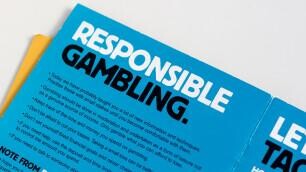
Responsible Gambling Features, Function and Help
Editorial Information
This value betting articles has been collated by the wisdom of OLBG members and our in house betting experts.
Nigel Skinner fact checked and updated the latest version and will continue to add any relevant information.
OLBG Editor-In-Chief Steve Madgwick edited and published the article.
Please do follow the links on this page as this will aid your value betting knowledge.
